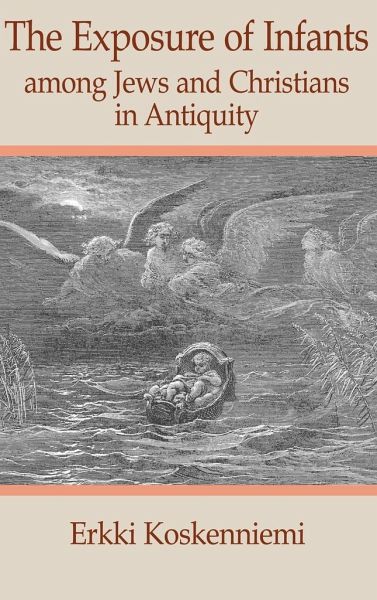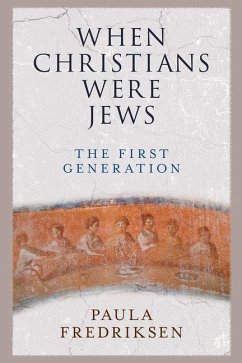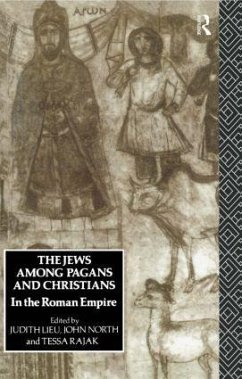Nicht lieferbar

The Exposure of Infants Among Jews and Christians in Antiquity
Versandkostenfrei!
Nicht lieferbar
This practice, so distasteful to the modern conscience, and shocking when we encounter it in reading about the ancient world, was nevertheless a normal feature of life in classical antiquity. There can be little doubt that both Jews and Christians, like their neighbours, practised the exposure of infants, whether for economic reasons, or because the child was of the wrong gender, or because of its illegitimacy. Otherwise, one can hardly explain the rich variety of arguments against the custom in rabbinic and patristic literature. In this novel and penetrating study, Koskenniemi reviews the evi...
This practice, so distasteful to the modern conscience, and shocking when we encounter it in reading about the ancient world, was nevertheless a normal feature of life in classical antiquity. There can be little doubt that both Jews and Christians, like their neighbours, practised the exposure of infants, whether for economic reasons, or because the child was of the wrong gender, or because of its illegitimacy. Otherwise, one can hardly explain the rich variety of arguments against the custom in rabbinic and patristic literature. In this novel and penetrating study, Koskenniemi reviews the evidence for the practice from Graeco-Roman, Jewish and Christian sources, and then, in the major part of the book, examines the rejection of the custom by Jewish authors like Philo and Josephus and by Christian writers such as Clement, Justin, Tertullian, Origen, Chrysostom and Augustine, many of whom adopted the arguments of their Jewish counterparts.













